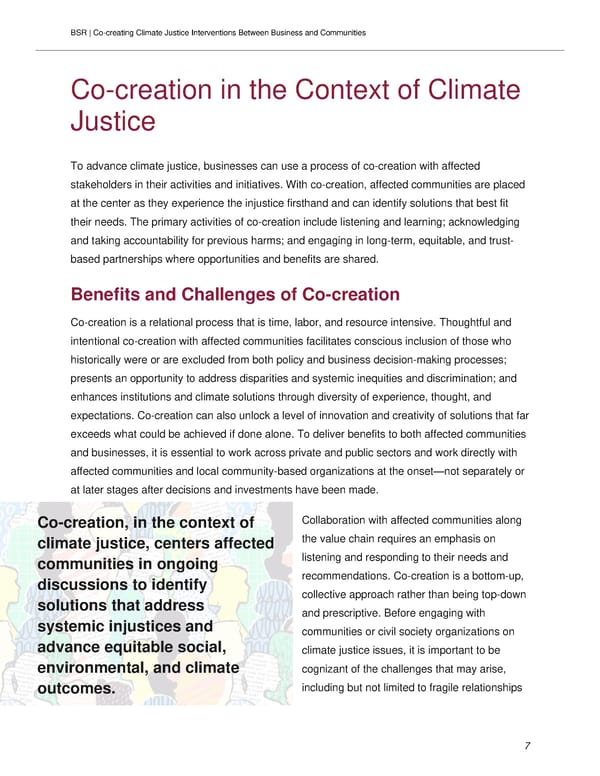BSR | Co-creating Climate Justice Interventions Between Business and Communities Co-creation in the Context of Climate Justice To advance climate justice, businesses can use a process of co-creation with affected stakeholders in their activities and initiatives. With co-creation, affected communities are placed at the center as they experience the injustice firsthand and can identify solutions that best fit their needs. The primary activities of co-creation include listening and learning; acknowledging and taking accountability for previous harms; and engaging in long-term, equitable, and trust- based partnerships where opportunities and benefits are shared. Benefits and Challenges of Co-creation Co-creation is a relational process that is time, labor, and resource intensive. Thoughtful and intentional co-creation with affected communities facilitates conscious inclusion of those who historically were or are excluded from both policy and business decision-making processes; presents an opportunity to address disparities and systemic inequities and discrimination; and enhances institutions and climate solutions through diversity of experience, thought, and expectations. Co-creation can also unlock a level of innovation and creativity of solutions that far exceeds what could be achieved if done alone. To deliver benefits to both affected communities and businesses, it is essential to work across private and public sectors and work directly with affected communities and local community-based organizations at the onset—not separately or at later stages after decisions and investments have been made. Co-creation, in the context of Collaboration with affected communities along climate justice, centers affected the value chain requires an emphasis on communities in ongoing listening and responding to their needs and discussions to identify recommendations. Co-creation is a bottom-up, solutions that address collective approach rather than being top-down systemic injustices and and prescriptive. Before engaging with communities or civil society organizations on advance equitable social, climate justice issues, it is important to be environmental, and climate cognizant of the challenges that may arise, outcomes. including but not limited to fragile relationships 7
 Co-creating Climate Justice Interventions Between Business and Communities Page 6 Page 8
Co-creating Climate Justice Interventions Between Business and Communities Page 6 Page 8